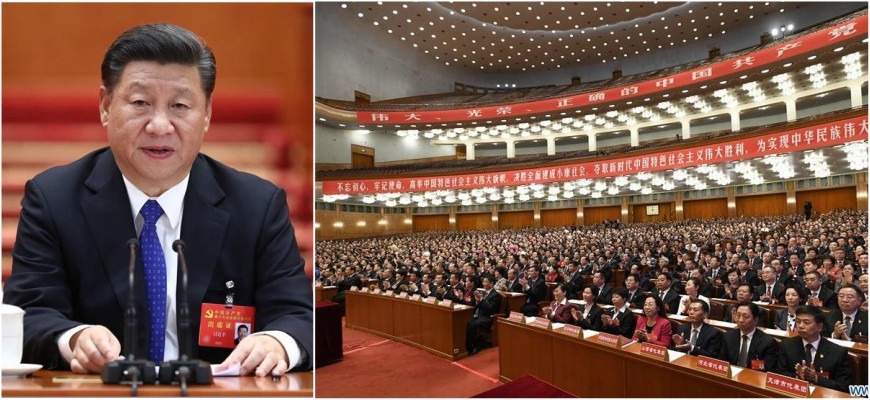Xi Jinping vows to make China a "great modern socialist country" by mid-21st century
Beijing, October 18: Chinese President Xi Jinping has pledge to build a modern socialist country that will be different from the political systems of others and will remain open to the world.

“CPC will lead the country to basically realize socialist modernization by 2035," Xi told more than 2,300 delegates from all walks of life attending the congress.
Not only have their material and cultural needs grown, their demands for democracy, rule of law, fairness and justice, security, and a better environment are also increasing, he said.
![]() Xi’s wide-ranging speech kicked off the twice-a-decade congress, a week-long that will culminate with the selection of a new Politburo Standing Committee for the next five years.
Xi’s wide-ranging speech kicked off the twice-a-decade congress, a week-long that will culminate with the selection of a new Politburo Standing Committee for the next five years.
Xi Jinping is set to further consolidate his power as the ruling Communist Party’s key Congress beginning tomorrow will confirm his second five-year term and amend the party’s Constitution to ensure the legacy of the Chinese president’s thoughts and ideas.
A new central leadership will be elected at the end of the 19th Congress of the Communist Party of China (CPC), party spokesman Tuo Zhen said in a media briefing yesterday.
After the plenary session, members of the new Standing Committee of the Politburo of the CPC Central Committee will meet Chinese and foreign journalists, Tuo said, confirming a major leadership transition at the once-in-a-five-year conference of the party.
Currently, the seven-member Standing Committee of the Politburo, which literally governs the country, is headed by Xi, 64, who besides being the general secretary of the party is also the president and head of the military. The other six members are Premier Li Keqiang, Zhang Dejiang, Yu Zhengsheng, Liu Yunshan, Wang Qishan and Zhang Gaoli.